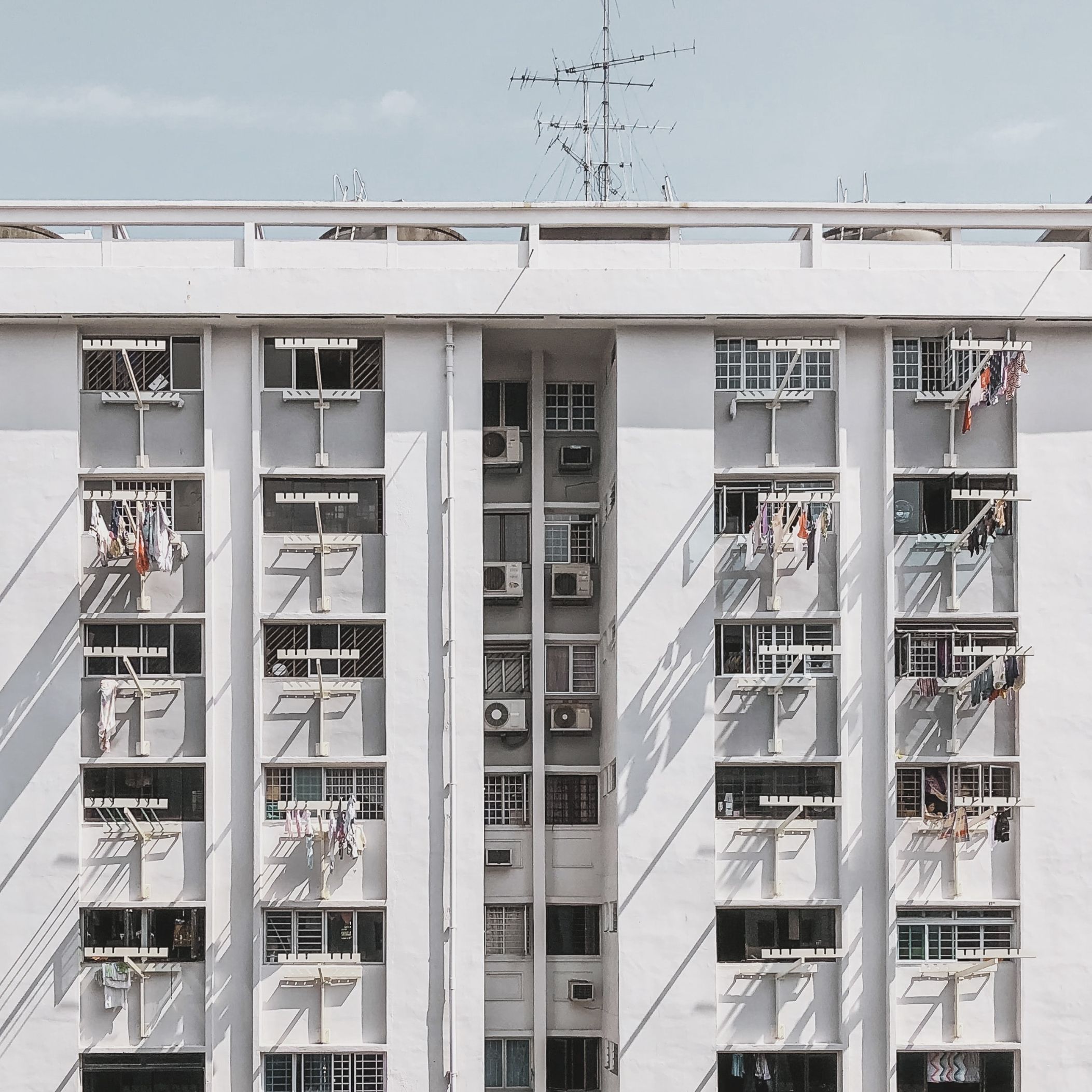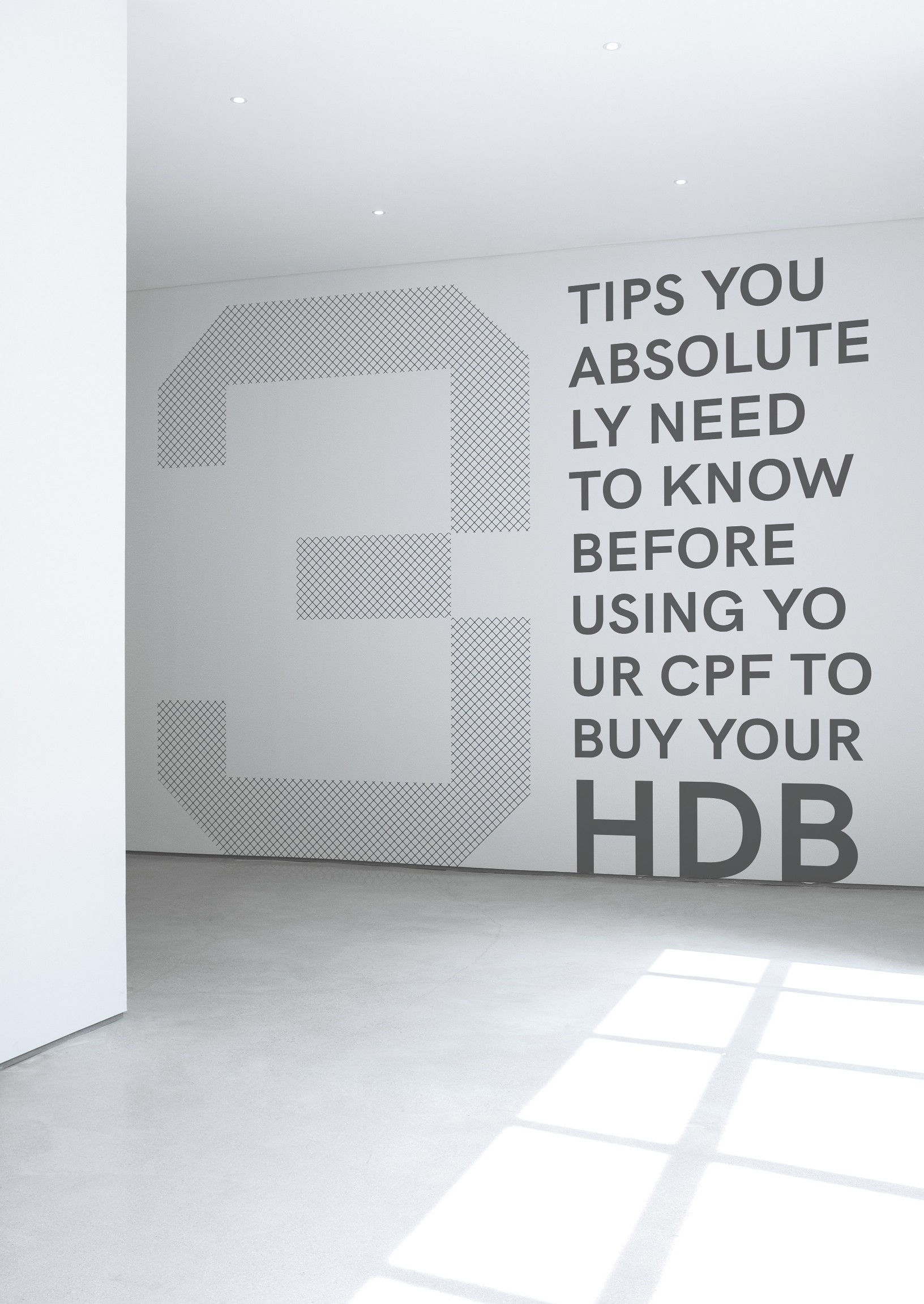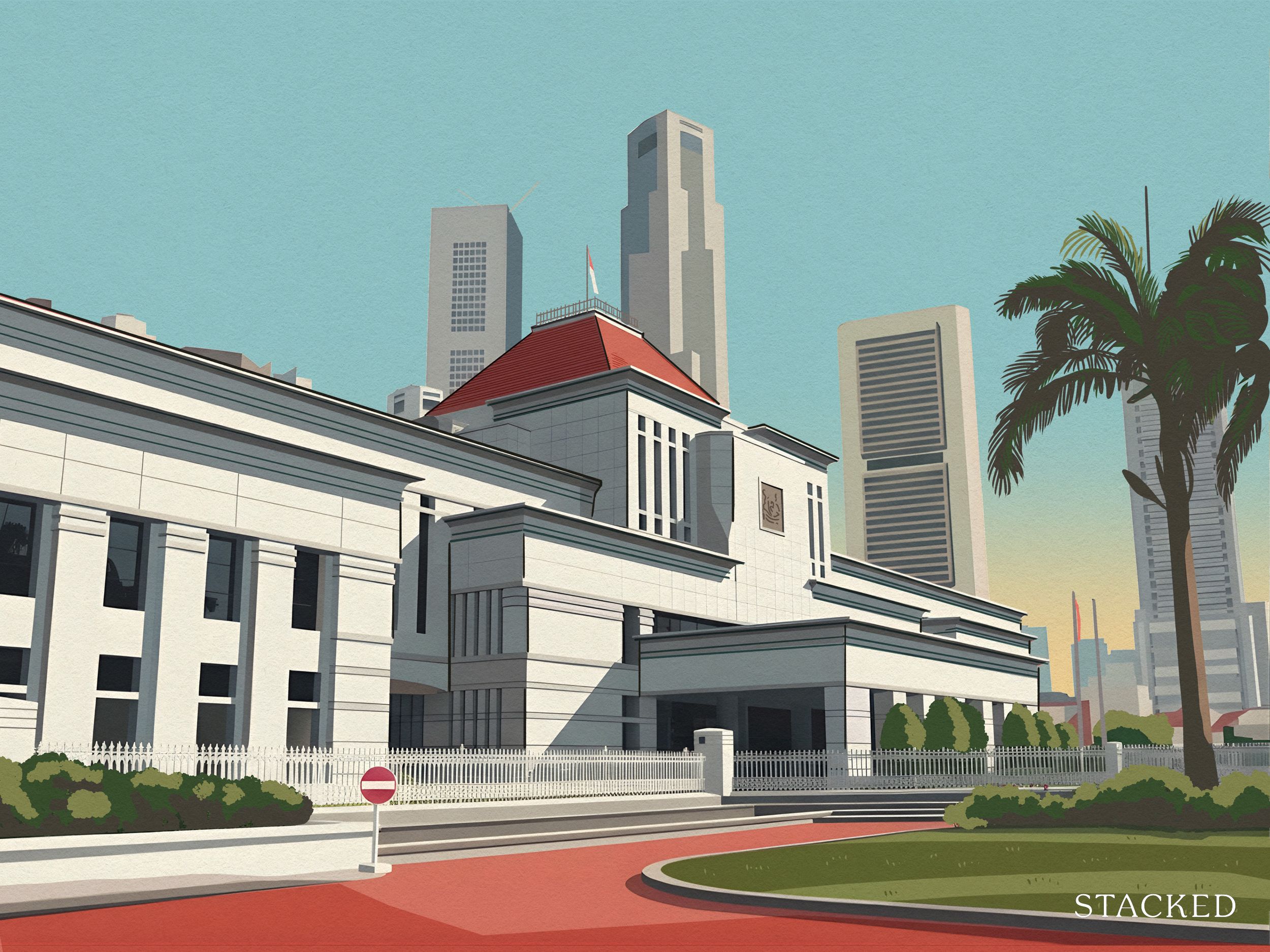HDB vs. SIBOR vs. Fixed Deposit: Which Home Loan is Best Right Now?
April 22, 2020

You’re at the bank listening to the mortgage banker talk, and you know this is important. But 15 minutes in, you realise all those comprehension lessons at school have failed you.
You understand the individual words coming out of the banker’s mouth – but you have no idea what they mean when set up in a sentence. HDB loans, SIBOR loans, fixed deposit rate loans; he may as well be explaining it in Swahili.
20 minutes later, a form is shoved under your nose. As you lift your pen, you realise that you have no idea what you’re signing, you just want it to be over and done with. But STOP.
The mortgage is something that’s going to be with you for a very long time. Often 25 to 30 years. That’s the entirety of your life from childhood to a working adult. Don’t just jump into it – take about 15 minutes to read the rest of this, and really understand what you’re getting into.
15 minutes of reading to benefit you for the next 25 to 30 years; not a bad deal right? Here goes:
Differences between HDB loans, SIBOR loans, and Fixed Deposit Loans at a glance
| HDB loans | SIBOR loans | Fixed deposit loans | |
| Interest rate volatility | Least volatile, has been 2.6% for decades now | The most volatile of the three | Can fluctuate, but not as much as pure SIBOR-pegged loan |
| Interest rate peg | Set at 0.1% above the prevailing CPF rate | Pegged to the Singapore Interbank Offered Rate | Pegged to a particular tranche of the bank’s fixed deposit rate |
| Maximum you can borrow (Loan to Value, or LTV ratio) | Up to 90% of the property price or valuation, whichever is lower* | Up to 75% of the property price or valuation, whichever is lower* | Up to 75% of the property price or valuation, whichever is lower* |
| Minimum down payment | 10% of property price or valuation, whichever is lower*. This can be paid through cash or your CPF Ordinary Account (CPF OA), in any combination | 25% of property price or valuation, whichever is lower*: First 5% must be in cash, next 20% can be in any combination of cash or CPF | 25% of property price or valuation, whichever is lower*: First 5% must be in cash, next 20% can be in any combination of cash or CPF |
| Flexibility | Only for HDB properties, excluding Executive Condominiums (ECs) Most lenient toward borrowers; few hidden terms and conditions. Can refinance into a bank loan later, but not the other way around. | Can be used for HDB or private properties You can choose the interest-rate period (e.g. one month SIBOR, three month SIBOR, and so forth) Generally, less forgiving than HDB.May have terms and conditions such as lock-ins | Can be used for HDB or private properties Generally, less forgiving than HDB.May have terms and conditions such as lock-ins |
*The valuation refers to the value as determined by a valuation company; the price is the actual asking price of the buyer. The two may differ. For new properties, the developer’s price is generally accepted as the valuation.
Why is an HDB loan good?

(Ps. In case it needs to be said, HDB loans can only be used for HDB properties, not condos, landed housing, etc. In particular, note that HDB loans cannot be used for ECs, you’ll need a bank loan for those. If you’re not sure about the property type, such as ECs versus regular condos, drop us a message on Facebook; we’ll help explain it to you).
- Lower down payment
- Interest rate seldom changes
- HDB is not profit-driven like the banks
- Conveyancing fees are much lower
1. Lower down payment
Assuming you have no credit issues, HDB is able to loan you up to 90 per cent of the property value. The remaining 10 per cent can be paid through any combination of cash or CPF.
The majority of Singaporeans will be able to cover the full 10 per cent down payment via CP. For example, for a $430,000 four-room flat, you would just need $43,000 in your CPF OA. Split between you and your co-borrower (e.g. your spouse), most Singaporeans end up paying nothing in hard cash.
This is different from the bank loans, where an absolute minimum of five per cent must always be paid in cash.
2. Interest rate seldom changes
There is no such thing as a permanent fixed-rate home loan in Singapore (even loans that are advertised as “fixed” will revert back to a fluctuating rate, after a certain time).
However, HDB loans come very close. The interest rate is 0.1 per cent above the prevailing CPF rate, which is technically revised every quarter. However, the CPF rate changes so rarely that it may as well be a fixed rate – it’s now been at 2.6 per cent for going on two decades.
Bank loan rates are more volatile.
3. HDB is not profit-driven like the banks
The bank is a business, and is beholden to its shareholders. They cannot let you get away with late payments, and have an obligation to foreclose if you can’t service your home loan.
HDB is not a business entity. Their main objective is to maintain a roof over the head of Singaporeans. As such, HDB is more tolerant toward those who have difficulty paying their home loans – they will take back your flat only as an absolute last resort.
4. Conveyancing fees are much lower
There are legal fees involved in buying your flat, but they can amount to just a few hundred dollars. In contrast, conveyancing fees for bank loans are between $2,500 to $3,000.
You can always pay for the legal fees via your CPF, when you use an HDB loan. For bank loans that’s not always the case: you can use your CPF to pay for some law firms, for others you need to pay in cash (but you can always tell the bank you want to use a different firm).
Why is a SIBOR loan good?
- Has been cheaper than HDB loans for a long time
- While it can rise faster, it can also fall faster
- No one entity has full control of the rates
- Can choose you interest-rate period for flexibility
1. Has been cheaper than HDB loans for a long time
More from Stacked
We Make $23k Per Month And Own A 29-Year-Old HDB: Should We Sell To Buy A Resale 3-Bedder Condo Or A Newer HDB Instead?
Dear Stacked Homes, Happy new year!
This is a very complicated issue, but to give you a simplified summary: bank loans became cheaper than HDB loans, after the Global Financial Crisis in 2008. Prior to that, bank loans rates averaged four per cent per annum. This is higher than HDB 2.6 per cent.
After the GFC, home loan rates have swung between 1.4 per cent to two per cent per annum, right up till today.
They were supposed to eventually climb back up, but for many reasons – Covid-19 currently being one of them – they haven’t. And it does seem that bank loans will be cheaper than HDB loans for a long time to come.
2. While it can rise faster, it can also fall faster
SIBOR loans are the most volatile of the three – that means the rate can climb in bigger increments as the overall interest rate rises. On the flipside, that can mean the rate also falls a lot faster.
For example, in the week after the US Federal Reserve cut interest rates to zero following Covid-19, some lucky borrowers were able to secure home loan packages that were barely above one per cent per annum.
It’s all about your own risk appetite.

Property Advice3 tips you absolutely need to know before using your CPF to buy your HDB
by Sean Goh3. No one entity has full control of the rates
The SIBOR rate is determined by taking the median interest rates of 12 local banks. It is overseen by the Monetary Authority of Singapore (MAS), to ensure the banks don’t collaborate or tamper with it.
You can check the current SIBOR rate by referring to The Association of Banks in Singapore (ABS) site.
There’s a degree of security here, as your bank can’t just decide to jack up your interest rate whenever it wants. The bank must adhere to the SIBOR rate as described in the loan package.
4. Can choose you interest-rate period for flexibility
You can choose a one-month SIBOR rate or three-month SIBOR rate (other longer versions, such as six-month or nine-month SIBOR do exist, but they’re about as rare as unicorns these days).
The interest rate period just described how long it is before your loan is adjusted to meet the current SIBOR rate. A one-month SIBOR loan is revised to meet the prevailing SIBOR rate every month, and a three-month loan is revised to meet SIBOR every quarter.
In general, the one-month rate is more volatile, and can both rise or fall faster (e.g. if you use a three-month rate, and the interest rate keeps falling for the next two months, then you’re losing out because you’re still paying the rate from three months ago. The reverse is true when the rate rises).
Why is a fixed deposit-pegged loan good?
These loans have more or less the same advantages as a SIBOR loan, but with two main differences:
First, these loan packages are not as volatile as SIBOR. They’re pegged to a particular tranche of the bank’s fixed deposit rates. While banks can change those rates, they don’t revise them as often as SIBOR moves (which is every day).
Ultimately, fixed-deposit rates do move in tandem with SIBOR rates. If SIBOR goes up or down, these loans will gradually start to follow. The difference is simply that they’ll climb or fall at a much slower pace than SIBOR.
Borrowers who want stability, but can’t use an HDB loan, tend to lean toward fixed deposit-pegged loans.
A second difference is that unlike a SIBOR package, your bank is fully in control of the rates you pay. The only disincentive to raising rates is that they’d also have to pay more on their fixed deposits, thus slightly raising their liabilities.
(Whether that’s a strong enough disincentive is a matter of debate).
So which loan type is best right now?
At the time we’re writing this (April 2020), SIBOR loans are favoured as the better deal. This is on the back of extremely cheap rates due to Covid-19. But note that at any one time, only two or three of the banks will be the cheapest, so don’t just take any SIBOR loan. There can be several hundred loan packages available at any time though, so contact us and we can help you narrow it down to the cheapest banks.
Now to speak on more general terms, you should pick the loan based on your situation. For those of you who have plans to sell the property in the near term (e.g. within the next five years), it makes sense to just go for what’s currently the cheapest. It doesn’t really matter to you what the loan rates will be 10 years from now, as you’ll have sold by then.
Landlords should constantly check the market for loan packages, and refinance when a good deal comes along. Lower interest rates translate to higher net rental yield. Most SIBOR loans are cheaper in the first three years, and spike on the fourth.
For HDB owners, who are often first-time home buyers, it’s generally best to make an HDB loan your first loan. This is because the HDB loan is very simple to understand, and don’t you don’t need to worry about issues like whether or when to refinance, or shopping around for the best rate.
There is also the fact that your initial down payment is lower – you could get away with paying nothing in cash. That could be a big deal if you’re just starting a family.
And if you decide you don’t like the HDB loan, well, you can always refinance into a bank loan later – but you can’t go from a bank loan to an HDB loan.
For more updates and useful information on home ownership, check out comprehensive condo reviews – because picking the right property is just as important as picking the right home loan. You can also contact us directly if you need help with your mortgage; we can help you source for a better rate.
At Stacked, we like to look beyond the headlines and surface-level numbers, and focus on how things play out in the real world.
If you’d like to discuss how this applies to your own circumstances, you can reach out for a one-to-one consultation here.
And if you simply have a question or want to share a thought, feel free to write to us at stories@stackedhomes.com — we read every message.
Frequently asked questions
What are the main differences between HDB, SIBOR, and fixed deposit home loans?
Why might someone choose an HDB loan over a bank loan?
Are SIBOR loans generally cheaper than HDB loans right now?
What are the advantages of fixed deposit-pegged home loans?
How should I decide which home loan type is best for me?
Ryan J. Ong
A seasoned content strategist with over 17 years in the real estate and financial journalism sectors, Ryan has built a reputation for transforming complex industry jargon into accessible knowledge. With a track record of writing and editing for leading financial platforms and publications, Ryan's expertise has been recognised across various media outlets. His role as a former content editor for 99.co and a co-host for CNA 938's Open House programme underscores his commitment to providing valuable insights into the property market.Need help with a property decision?
Speak to our team →Read next from Property Market Commentary

Property Market Commentary How I’d Invest $12 Million On Property If I Won The 2026 Toto Hongbao Draw

Property Market Commentary We Review 7 Of The June 2026 BTO Launch Sites – Which Is The Best Option For You?

Property Market Commentary Why Some Old HDB Flats Hold Value Longer Than Others

Property Market Commentary We Analysed HDB Price Growth — Here’s When Lease Decay Actually Hits (By Estate)
Latest Posts

Pro River Modern Starts From $1.548M For A Two-Bedder — How Its Pricing Compares In River Valley

New Launch Condo Reviews River Modern Condo Review: A River-facing New Launch with Direct Access to Great World MRT Station

On The Market Here Are The Cheapest 5-Room HDB Flats Near An MRT You Can Still Buy From $550K




































6 Comments
hey thanks for the writeup. I’m looking to refi my private property soon, do you recommend using a mortgage broker ?
Could you please advise which SIBOR home loans are the banks offering right now?
Hi, I am looking for HDB resale flat bank loan. Any recommendation for the best interest rate or option to me?